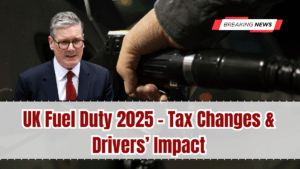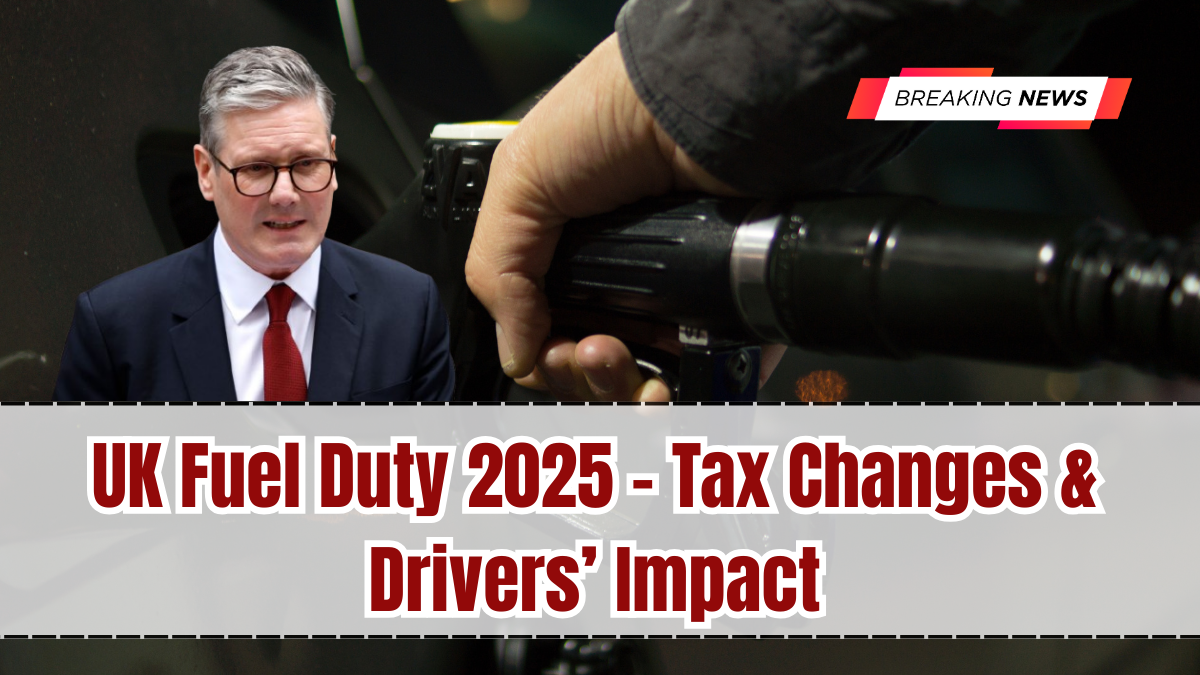Fuel duty has always been a sensitive subject in the United Kingdom, as it directly impacts millions of drivers and businesses. In 2025, changes to UK Fuel Duty 2025 have sparked new debates across the country. With rising living costs and environmental goals at the forefront, fuel taxation is shaping how people travel, budget, and adapt to modern transport policies.
The government views fuel duty as both a source of revenue and a tool to promote greener transportation. For drivers, however, it often feels like another layer of financial pressure. This year, duty increases are reshaping household spending and sparking conversations about the future of petrol and diesel use.

What Changed in 2025?
The UK government raised fuel duty in 2025 after several years of freezes and temporary relief measures. Petrol and diesel duties increased by approximately 5 pence per litre, reversing years of stagnation and reflecting the government’s push toward climate commitments.
The increase is tied to broader environmental strategies, including encouraging electric vehicle adoption and reducing dependency on fossil fuels. While the rise may seem small, it translates into significant costs for frequent drivers and logistics companies.
Impact on Drivers and Households
For the average driver, UK Fuel Duty 2025 means higher fuel bills at a time when many households are already stretched. Commuters face higher monthly transport costs, and families planning road trips must allocate more of their budgets to petrol or diesel.
The situation is even more challenging for those in rural areas where public transport options are limited. Unlike urban residents who can rely on buses or trains, rural drivers often have no alternative but to absorb the added cost.
Effect on Businesses and Logistics
Businesses dependent on transportation are also feeling the impact. Logistics firms, delivery services, and taxi operators face higher operating costs, which often get passed on to consumers through increased prices for goods and services.
Small businesses, particularly those with limited margins, are among the hardest hit. Many are exploring ways to reduce fuel dependency, including investing in electric vans or optimizing delivery routes to save costs.
Environmental Goals and Policy Intentions
The government justifies the fuel duty hike as part of its strategy to reduce emissions and meet climate targets. Higher fuel costs are expected to encourage more drivers to switch to electric vehicles or alternative modes of transport.
This aligns with broader policies, such as expanding EV charging networks and offering subsidies for green vehicles. While the short-term burden is heavy for drivers, officials argue that the long-term benefits of reduced emissions and cleaner air outweigh the challenges.
Public Reactions to the Duty Hike
Reactions to UK Fuel Duty 2025 have been mixed. Environmental groups welcome the move, praising it as necessary for reducing reliance on fossil fuels. On the other hand, motoring associations and consumer groups have criticized the government for burdening drivers during a cost-of-living crisis.
Petitions and calls for relief have emerged, especially from rural communities and business groups. Many argue that without adequate alternatives, fuel duty hikes unfairly punish those with no choice but to drive.
Strategies Drivers Are Using to Cope
To adapt, drivers are becoming more conscious of fuel efficiency. Many are adopting eco-driving habits such as reducing idling, maintaining steady speeds, and ensuring proper tire pressure.
Others are exploring carpooling, public transport, or hybrid vehicles as cost-saving alternatives. The surge in interest for smaller, fuel-efficient cars in 2025 reflects how consumer behavior is shifting under new tax rules.
The Future of Fuel Duty in the UK
Looking ahead, experts predict that fuel duty will remain a key government tool for balancing revenue and environmental goals. As electric vehicles become mainstream, revenue from petrol and diesel will decline, forcing policymakers to consider road usage charges or alternative tax models.
For now, drivers must prepare for continued adjustments. UK Fuel Duty 2025 may mark the beginning of a more aggressive shift toward greener policies, with direct implications for every household and business in the country.
FAQs
How much did UK Fuel Duty increase in 2025?
Fuel duty rose by about 5 pence per litre on petrol and diesel compared to previous years.
Why did the government raise fuel duty in 2025?
The increase supports environmental goals, encouraging a shift to electric vehicles and reducing carbon emissions.
Who is most affected by higher fuel duty?
Rural drivers and transport-heavy businesses are the most impacted due to limited alternatives to petrol and diesel.
Are there ways to reduce fuel expenses in 2025?
Yes, eco-driving, carpooling, using public transport, or switching to hybrid and electric vehicles can lower fuel costs.
Will fuel duty continue to rise in the future?
Experts suggest further adjustments are likely, with a long-term shift toward alternative tax models as EV adoption increases.
Click here to know more.
